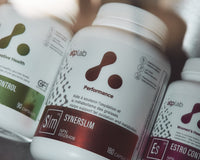Simplexity 2: Protein

In our last article which was the introduction to the “simplexity” idea, we took the concept of a vastly complex topic with many moving parts and analyzed it down to the well-referenced action items to avoid paralysis analysis. Today we will continue with the same theme via an examination of protein and its specific requirements/function in the body as well as the good, bad, and ugly of protein consumption.
What is protein? Protein is an essential calorie-containing macro nutrient that is made up of a series of amino acids. Each protein has a specific sequencing of amino acids that gives it its unique structure, and this structure can be in the form of a complete protein which contains ALL essential amino acids, or an incomplete protein which might be missing one or more of the essentials.
Here is a link for essential vs non-essential amino acids: http://www.majordifferences.com/2013/02/difference-between-essential-and.html#.WRna0lPyt8c
When we consume protein, the body digests and via processing breaks it down to basic amino acids that eventually find their way to the liver where they stay in an amino acid “store house” and wait to get assembled to whatever protein the body may require.
What do we use protein for? The body uses both individual amino acids and complete proteins for a variety of needs. The classic recognition of what protein is for is muscle as that is the largest concentration of protein in the human body. Most would be surprised to know that: hair, skin, nails, connective tissue, all enzymes, some hormones, blood particles, and even organ tissue are either protein-based or contain some form of protein in their structure. The body also uses single amino acids for specialized compounds like neurotransmitters, certain antioxidants, and other biochemical and immune-based functions. To say the least, next to water, protein is the next most abundant and required nutrient in the human body for structure and function.
So what is the big deal about protein? Since the dawn of time, well probably since the first “gym-bro” walked the earth there has been debate between different parties regarding topics like; protein consumption, protein timing, excess intake vs deficiency, so on and so forth. On that note, let’s look at our take on protein, and run it through the simplexity system. The research for both adequate and excessiveive protein consumption is quite vast and in some cases conflicting. The RDA will state that adequate protein consumption for an adult is 0.8g/kg of body weight, so that means a 80kg/176lb man should eat 64 grams of protein per day. If you all just chocked on your chicken breast, you are not alone. In my opinion someone can survive on this (probably on bed rest) but we don’t think this is optimal by any means.
What are the dangers of protein deficiency? Remember those above protein requirements? Any one of those is at risk of lacking if we under-consume protein, greatest of all is that our precious muscle mass is as risk for being catabolized by the body for the higher purpose of making enzymes and hormones. Long term muscle sarcopenia leaves us at risk for a reduction in metabolic activity via a lowered resting metabolic rate and potential weakness which is always more dangerous than being strong. Compound this with the natural decline of strength, muscle, and anabolic hormones as we age, and you can see why people end up needing walkers with the skeletal structure of a curved coat rack. This should all makes sense because I really don’t think this problem is experienced by many who are reading this. On the contrary, the other side of the equation, protein excess does come with its own set of issues that we need to further discuss….
How much protein do we actually need? For fear of rather angry muscular people hunting me down for the follow review, I will maintain a low profile for the next 6 weeks! My reason for this is many people stick to the 1gram of protein per pound of bodyweight as the STARTING POINT when it comes to building or retaining muscle, and they think its LAW. I often see young and eager trainees crushing north of 2grams per pound thinking it will accelerate their gains. The only thing that will likely accelerate is the speed at which people leave the room after one of those guys drops a fart. I will get to the negatives regarding gut health later so for now we will focus on the optimal quantity. We consume protein to support supplying the raw materials for muscle protein synthesis that is stimulated by exercise.. We also experience slight protein breakdown from hard training but this phenomenon is somewhat misunderstood for a couple reasons. The optimal range of protein intake for most is within the range of 1.3-1.8g per kg of body weight with 1.6 likely being the top end of the sweet spot given what the research says. This might shock some people given what much of the “bro-science” says, but if you carefully examine it as we have, it’s hard to find any legitimate justification to consume more than that. The only time where is would make sense would be under situations of extreme biochemical enhancement with anabolics or growth hormone. The reason is that we as humans have a couple variables that must be considered when it comes to protein needs vs requirements; 1. As we advance in our training age, we actually get more efficient at sparing protein loss and enhancing protein synthesis so therefore, we recover with less protein required 2. We all have a genetic limit for building muscle, and the closer we get to that, the less anabolic our protein synthesis response is. 3. Protein synthesis is governed by the body’s ability to facilitate new protein metabolism. This is dependent on more than just protein intake and can ONLY happen so fast 4. Training stimulus/volume/frequency/recovery are important variables to initiate the growth response, so is micronutrient intake (vitamins & minerals). After all this, it becomes clear to us that regardless of bulking or cutting, protein intake above 1.8grams per kg of body weight likely doesn’t do much to either build faster or prevent muscle loss because when humans diet down the body spares even more protein through the formation of ketones, which are protein-sparring by nature.
Wait, there’s more….. I said there were other downside of EXCESS protein consumption that we quickly need to examine. Protein consumed over and above what is required is typically metabolized for energy which is a very inefficient process that in excess can result in an excessive buildup of urea which MIGHT in people with kidney issues place extra strain on the renal system. Although this is still up for debate as a concerning factor. My bigger worry is surrounding nutrient deficiencies and gut health as high protein intake can be a potential issue in context. If someone is counting macros and protein comprises a large quantity of their intake, the relative nutritional deficiencies from vitamins and minerals can become a very real issue in the long run. This will end up back firing if the goal is muscle growth and recovery because the body runs on micronutrients, not calories. The second issue surrounds gut health and protein intake, specifically the fact that the microbiome (bacteria makeup) in our GI tract tract NEEDS a good supply of fermentable fibers to build diversity, maintain health, and regulate function. If we are over-consuming protein which is a non-fermentable calorie, it can imbalance the ratio of microbes and predispose us to potential gut issues, inflammatory responses and in conjunction with long term nutrient deficiencies, compromised health and therefore performance/recovery.
What do we do? Well, knowing an optimal intake is somewhere around 1.6grams per kg of body weight, some basic math will give you your specific quantity and you simply distribute it across your day. I would encourage paying special attention to timing as it would benefit you to have elevated amino acids before you train, and again within 60min of the end of your session. Getting a good source of protein in the morning would also be on my list, especially if you have gone 12 hours without food from the overnight fast. Is it going to harm you to consume slightly more than our suggestion? Likely not, but don’t think more is always better with protein, more is simply more! By: Roland Pankewich & Vincent Comtois
References https://www.ncbi.nlm.nih.gov/pmc/articles/PMC4208946/ https://www.ncbi.nlm.nih.gov/pubmed/15212752 https://www.ncbi.nlm.nih.gov/pubmed/22150425 https://www.ncbi.nlm.nih.gov/pubmed/12380246 http://bayesianbodybuilding.com/eric-helms-protein/ http://bayesianbodybuilding.com/the-myth-of-1glb-optimal-protein-intake-for-bodybuilders/





